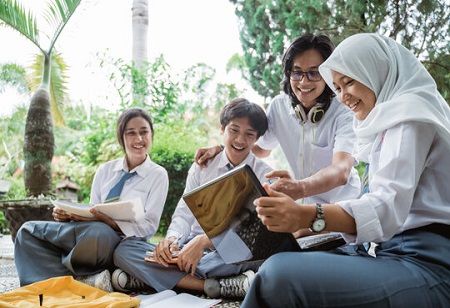The government will introduce new academic tests along with revived specialization pathways in secondary schools. The education scene on the high school level in Indonesia will be going through a paradigm shift as the government makes it known that specialization tracks in science, social studies, and language will be reopened. Minister of Education Abdul Mu'ti broke this news to a Halalbihalal session with Forum Wartawan Pendidikan (Fortadik) held in Jakarta.
These tracks of specialization Ilmu Pengetahuan Alam (IPA), Ilmu Pengetahuan Sosial (IPS), and Bahasa were earlier done away with by the introduction of the Kurikulum Merdeka by former Minister Nadiem Makarim. This change was meant to prevent students from being grouped in a strict manner according to their academic prowess. Nevertheless, three years down the line, Mu'ti recognized that it has not sufficiently equipped students for further education.
“This is a little sneak peek: we will revive the specialization tracks. So, high school students will once again have the IPA, IPS, and Language tracks”, Mu’ti stated. He explained that the move is aligned with the upcoming implementation of the Tes Kemampuan Akademik (TKA), which is set to replace the Ujian Nasional starting in November 2025.
The TKA will initially be implemented for 12th-grade students, with its implementation in elementary and middle school grades the next year. While the Ujian Nasional was compulsory, the TKA is optional and aimed at students who want to enhance their academic portfolios.
For TKA, students will be expected to sit for compulsory tests in Bahasa Indonesia and Mathematics, as well as subject tests that match their specialization. For example, students in the IPA stream may choose from Biology, Chemistry, or Physics, while those in the IPS stream can choose between Economics, Geography, or History.
Mu'ti was hopeful that this new system would be able to more accurately determine the academic abilities of students and match them with their higher education options. He pointed out that the TKA would be a more objective and standardized measurement instrument for universities in choosing potential students.
"Once Nadiem's system came into place, foreign universities turned down Indonesian applicants since there was no specified yardstick for academic potential. Now, with the TKA, we have a tool that can really highlight students' potential", Mu'ti says.
The government will institutionalize this through a new ministerial regulation, which will also revoke the current Permendikbudristek Nomor 12 Tahun 2024 that now regulates the curriculum. With the changing education system, restoring the specialization streams is viewed as a key development to improve the quality of education and prepare the students better to meet the demands of higher studies and beyond. The TKA will be providing a more detailed format for student performance evaluation and guaranteeing Indonesian students' capabilities to compete well both nationally and globally.
Briefly, the government of Indonesia is finally taking bold measures to enhance secondary school education through the reintroduction of specialization streams with a view to harmonizing academic evaluations with the eventual future studies of students. The move represents a paradigm shift in the education policy in that it demonstrates a responsive policy to student needs and the requirements of institutions of higher learning.

